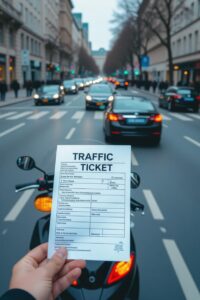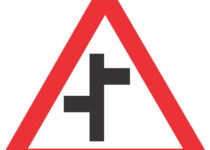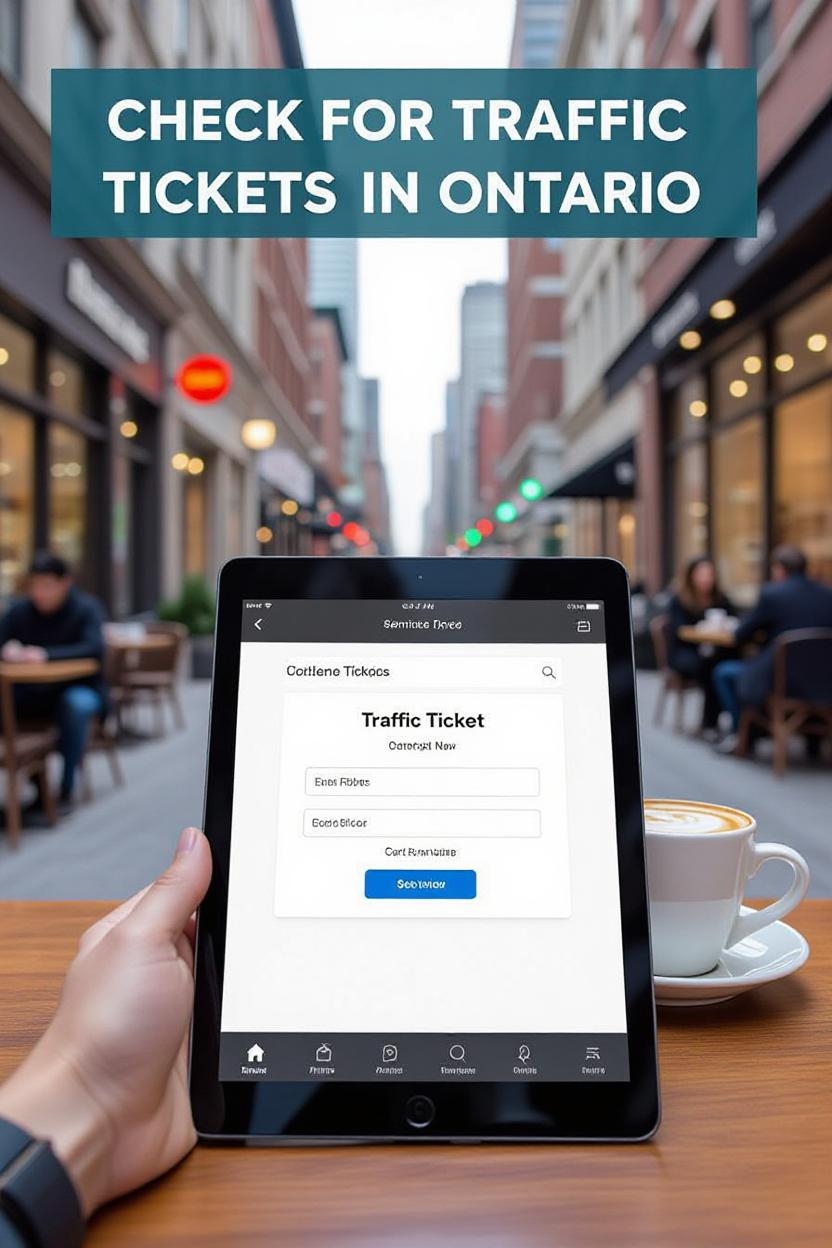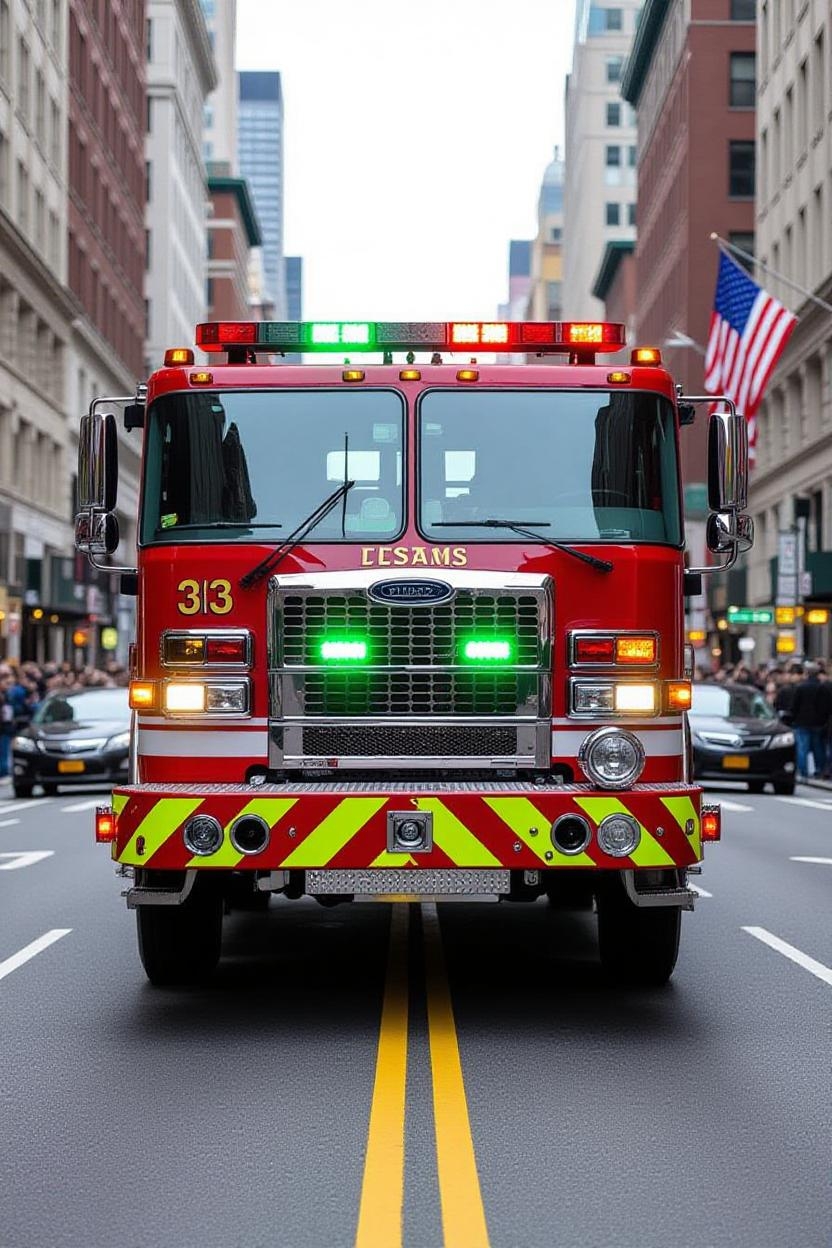Is A Traffic Ticket A Misdemeanor?
Getting pulled over for a traffic violation can be stressful, but understanding the legal implications of a traffic ticket can help ease some of that anxiety.
One common question drivers ask is whether receiving a traffic ticket means they’ve committed a misdemeanor offense.
The answer depends on the type of violation, local laws, and the circumstances surrounding the incident.
While many traffic tickets are considered civil infractions, some can rise to the level of misdemeanors—or even felonies—in more serious cases.
In this article, we’ll break down the difference between infractions, misdemeanors, and more serious traffic offenses to help you understand what a ticket really means for your record and your rights.
What’s A Misdemeanor?
A misdemeanor is a criminal offense that is less serious than a felony but more serious than an infraction.
In the context of traffic violations, a misdemeanor traffic ticket involves offenses that go beyond minor infractions, such as reckless driving, driving under the influence (DUI), or driving with a suspended license.
Penalties for misdemeanor traffic offenses can include fines, points on your driving record, license suspension, mandatory community service, probation, or even jail time (typically up to one year, depending on the state and offense).
Is A Traffic Ticket A Misdemeanor?

A traffic ticket is a citation issued by law enforcement for violating traffic laws, but whether a traffic ticket is a misdemeanor depends on the specific violation, state laws, and circumstances of the offense.
Most traffic tickets are classified as infractions, which are minor, non-criminal offenses typically punishable by fines or points on your driving record (e.g., speeding, running a stop sign).
If you are in Ontario, here’s a detailed guide on how to check if you have traffic tickets online Ontario. However, certain traffic violations are considered misdemeanors, which are criminal offenses and carry harsher penalties, such as fines, license suspension, or up to one year in jail.
Traffic Tickets That Are Considered Misdemeanor And When It’s Not?
1. Reckless Driving
Reckless driving is typically classified as a misdemeanor in most jurisdictions, including many states in the U.S. and countries with similar legal frameworks, such as those in West Africa.
Unlike minor traffic infractions like speeding or improper parking, reckless driving is considered a criminal offense due to its potential to endanger lives or property.
However, the exact classification, penalties, and definitions vary by jurisdiction, and in rare cases, reckless driving can escalate to a felony under specific circumstances.
Misdemeanor Penalties For Reckless Driving (varies by jurisdiction):
- Fines: Ranging from $100 to $1,000 or more (e.g., up to $2,500 in California for a first offense).
- Jail Time: Up to 7 days to 6 months, depending on the state or country (e.g., up to 90 days in California, 12 months in Virginia).
- License Points or Suspension: Points on your driving record (e.g., 4 points in Virginia) or suspension for a period (e.g., 6 months in some states).
- Probation or Community Service: Common in some jurisdictions, especially for first-time offenders.
- Criminal Record: A misdemeanor conviction may appear on background checks, potentially affecting employment or other opportunities.
When It’s Not a Misdemeanor:
- In rare cases, reckless driving can be a felony if it involves extreme circumstances, such as causing serious injury or death (e.g., vehicular manslaughter in some states).
- Some jurisdictions may reduce minor reckless driving charges to an infraction for first-time offenders with mitigating factors, though this is less common
2. Driving Under The Influence (DUI/DWI).
Driving Under the Influence (DUI) or Driving While Intoxicated (DWI) is typically classified as a misdemeanor even for a first offense.
Misdemeanor DUI/DWI Penalties
Penalties vary by jurisdiction but typically include:
- Fines: Ranging from $100 to $2,000 or more (e.g., up to $1,000 in California for a first offense).
- Jail Time: From 48 hours to 6 months, often depending on BAC or circumstances (e.g., 72 hours minimum in California, up to 7 days in Texas).
- License Suspension: Typically 6 months to 1 year (e.g., 6 months in California, 90 days in Virginia).
- Probation: 1-3 years, often with conditions like alcohol education programs or community service.
- Ignition Interlock Device (IID): Required in some states after a DUI conviction to prevent driving while impaired.
- Criminal Record: A misdemeanor DUI conviction may appear on background checks, potentially affecting employment, housing, or professional licenses.
- Insurance Impact: Higher premiums or requirement for an SR-22 form (proof of insurance).
When DUI/DWI is Not a Misdemeanor
Felony DUI/DWI: A DUI/DWI can escalate to a felony under specific conditions, such as:
- Repeat Offenses: A second or third DUI within a set period (e.g., 7-10 years in many states) may be a felony.
- Injury or Death: Causing serious bodily injury or death (e.g., vehicular manslaughter) often results in felony charges.
- High BAC: Extremely high BAC levels (e.g., 0.15% or higher in some states) may trigger harsher charges.
- Minors in Vehicle: Driving impaired with a child in the car can elevate the charge to a felony in some jurisdictions.
• Infraction or Lesser Charge: In rare cases, a first-time DUI with mitigating factors (e.g., very low BAC or no prior record) may be reduced to a “wet reckless” (reckless driving involving alcohol), which is still a misdemeanor but with lighter penalties than a standard DUI.
3. Driving With A Suspended License.
This offense is considered more serious than a standard traffic infraction due to its implications for public safety and disregard for legal restrictions.
However, the exact classification, penalties, and consequences depend on the jurisdiction, the reason for the license suspension, and the circumstances of the offense.
Misdemeanor Penalties (varies by jurisdiction):
- Fines: Typically range from $100 to $2,500, depending on the jurisdiction and severity. For example, California imposes fines up to $1,000 for a first offense.
- Jail Time: Up to 7 days to 6 months, though jail is more likely for repeat offenses or aggravating factors (e.g., 5 days to 6 months in California, up to 12 months in Virginia).
- License Suspension Extension: The suspension period may be extended, or the license may be fully revoked.
- Probation or Community Service: Common in some jurisdictions, especially for first-time offenders.
- Criminal Record: A misdemeanor conviction can appear on background checks, potentially affecting employment, professional licenses, or insurance rates (e.g., requiring an SR-22 form).
4. Hit And Run
In most cases, a hit-and-run is classified as a misdemeanor, especially when it involves property damage or minor injuries.
However, it can escalate to a felony in more severe cases, such as when serious bodily injury or death occurs.
Misdemeanor Hit-and-Run:
Typically applies to incidents involving only property damage (e.g., hitting a parked car) or minor injuries (e.g., a fender-bender with no serious harm).
Penalties often include:
- Fines: Ranging from $100 to $1,000 or more (e.g., up to $1,000 in California for property damage).
- Jail Time: Up to 6 months to 1 year, depending on the jurisdiction (e.g., up to 6 months in California for property damage hit-and-run).
- License Points or Suspension: Points on your driving record (e.g., 2 points in California) or suspension for a period.
- Restitution: Paying for damages to the victim’s property or medical costs.
- Probation or Community Service: Common for first-time offenders.
- Criminal Record: A misdemeanor conviction may appear on background checks, potentially affecting employment or insurance rates.
Example: In California, under Vehicle Code 20002, a hit-and-run involving property damage is a misdemeanor, with up to 6 months in jail and a $1,000 fine. If minor injuries are involved (Vehicle Code 20001), it’s still a misdemeanor but with slightly harsher penalties.
Felony Hit-and-Run:
Occurs when the incident involves serious bodily injury or death. For example:
- In California, a hit-and-run causing serious injury or death (Vehicle Code 20001) can be charged as a felony, with up to 3-7 years in prison and fines up to $10,000.
- In Virginia, a hit-and-run with injury or significant property damage (over $1,000) can be a felony under Code § 46.2-894.
Felony charges carry longer prison sentences and more severe consequences, including a permanent criminal record.
Infraction (Rare):
In some jurisdictions, a hit-and-run involving very minor property damage (e.g., a small dent with no reported injuries) may be treated as an infraction, especially for first-time offenders. However, this is uncommon, as most hit-and-run cases are treated as criminal offenses due to the act of fleeing.
How To Confirm If A Traffic Ticket Is Misdemeanor?
To confirm whether a traffic ticket, such as one for reckless driving or hit-and-run, is classified as a misdemeanor, you need to take specific steps to investigate the nature of the charge.

Below is a clear, practical guide to determine if your traffic ticket is a misdemeanor.
1. Examine The Citation or Ticket:
Details on the Ticket: The ticket itself often includes key information:
- Offense Description: Look for terms like “reckless driving,” “hit-and-run,” “DUI,” or specific legal codes (e.g., California Vehicle Code 20002 for hit-and-run or 23103 for reckless driving).
- Court Appearance Requirement: If the ticket requires a mandatory court appearance (often indicated by a court date or instructions to appear), it’s more likely a misdemeanor, as infractions can typically be resolved by paying a fine online or by mail.
- Penalty Indications: Some tickets list potential penalties (e.g., fines or jail time), which can hint at misdemeanor status if jail time is mentioned.
2. Check the Relevant Legal Code or Statute:
Each state has a vehicle code or traffic laws available online through the Department of Motor Vehicles (DMV) or state government websites. Search for the statute listed on your ticket.
For example:
- California: Visit the California DMV or Legislative Information website (leginfo.legislature.ca.gov) and look up the code (e.g., VC 23103 for reckless driving, a misdemeanor).
- Virginia: Check the Virginia Code (§ 46.2-852 for reckless driving, a Class 1 misdemeanor).
- Texas: Review the Texas Transportation Code (e.g., § 550.021 for hit-and-run, which can be a misdemeanor or felony).
The statute will specify whether the offense is an infraction, misdemeanor, or felony and outline penalties like fines or jail time.
How to Access: Use online legal databases, government websites, or visit a local DMV/traffic authority office. If the statute mentions jail time or a criminal record, it’s likely a misdemeanor.
3. Contact the Issuing Authority or Court:
Call the court listed on the ticket (often a traffic or municipal court) and provide your ticket number or case details. Ask whether the charge is an infraction, misdemeanor, or felony.
- For example, a reckless driving ticket in Virginia requiring a court appearance is likely a Class 1 misdemeanor, while a speeding ticket is typically an infraction unless excessive (e.g., 20 mph over the limit).
What to Ask: “Is this ticket classified as a misdemeanor or infraction under [state/country] law? Does it require a court appearance, and what are the potential penalties?”
4. Consult a Traffic Attorney:
A lawyer specializing in traffic law can definitively confirm whether your ticket is a misdemeanor by reviewing the citation and applicable laws. They can also explain:
- The exact classification (infraction, misdemeanor, or felony).
- Potential penalties (fines, jail time, license suspension).
- Defenses or options to reduce the charge (e.g., pleading a reckless driving misdemeanor down to an infraction in some U.S. states).
5. Look for Indicators of Criminal Charges:
- Court Summons: Misdemeanors like reckless driving or hit-and-run often require a court appearance, unlike infractions, which can often be resolved by paying a fine online or by mail.
- Penalties Listed: If the ticket or related documentation mentions jail time (e.g., up to 6 months for hit-and-run in California or 1 year for reckless driving in Virginia), it’s likely a misdemeanor.
- Arrest or Booking: If you were arrested, fingerprinted, or booked at a police station for the offense (common for DUI or hit-and-run), it’s typically a misdemeanor or felony, not an infraction.
6. Check Online Court or DMV Records:
Many states have online portals for court records or DMV services where you can look up your ticket by citation number, driver’s license, or name. These portals may indicate the charge’s classification.
- For example, California’s court websites or Virginia’s Judicial System portal allow you to check case details.
Summary
A traffic ticket is not automatically a misdemeanor; its classification depends on the offense, jurisdiction, and specific circumstances.
Reckless driving and hit-and-run are typically classified as misdemeanors in most jurisdictions, including U.S. states and West African countries like Nigeria and Ghana, due to their potential to endanger lives or property.
However, they can escalate to felonies in severe cases (e.g., causing serious injury or death) or be reduced to infractions in rare instances (e.g., minor property damage in a hit-and-run).


